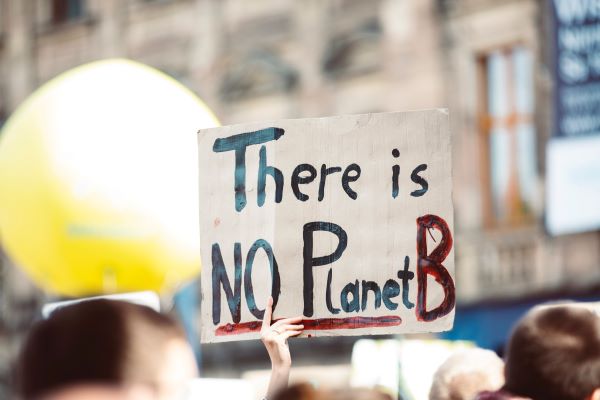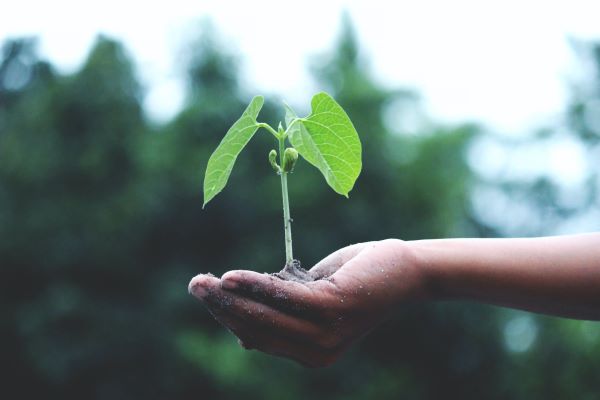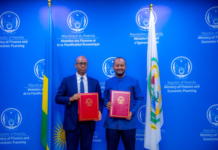The United Nations Climate Change Conference is an annual event that brings nations together to address climate change. This year’s event will be the 28th gathering and is scheduled to be held from November 30 to December 12 at the Expo City in Dubai, United Arab Emirates.
While COP has traditionally focused on fossil fuels, this year the United Nations is finally putting the environmental impact of food and specifically animal agriculture on the agenda. In another summit first, and in keeping with the theme, the catering this year will be two thirds plant-based. Delegates from ProVeg International including South Africa’s country director Donvan Will are attending to advocate for a global food system centered around alternative proteins that is more sustainable and in line with mitigating global warming.
The food system accounts for more than a third of global greenhouse gas emissions according to a 2021 study, but its impact on the environment has long been overshadowed by issues like transport, energy and industrial manufacturing. As awareness has grown, the issue has finally been given a seat at the summit.
ProVeg South Africa will be joining our international team and leading the Food4Climate Pavilion at the event within the Blue Zone, which will be in the presence of top diplomats and delegates. ProVeg has permanent-observer status with the UNFCCC, is accredited with UNEA, and has received the United Nations’ Momentum for Change Award. Our representatives are also participating in panel discussions at this year’s conference.
President Cyril Ramaphosa is expected to lead the South African governmental delegation, with Forestry, Fisheries and the Environment Minister Barbara Creecy and her department driving the agenda.
According to the Intergovernmental Panel on Climate Change, Africa faces the most severe challenges due to environmental factors. The negative effects of climate change on the African continent have become increasingly vivid through disasters such as continuous floods, drought and famines. Seven out of the ten most vulnerable countries by climate change in 2021 were African.
The time is ripe to sound the alarm on how the food we eat is warming our planet to a perilous level and ProVeg will call for a transformational shift to plant-rich, balanced and diversified diets. Addressing the issue on an agricultural level is also a powerful tool in the hands of the South African government to reach our goal for Nationally Determined Contributions [NDCs] in terms of the Paris Agreement, to lower our greenhouse gas emissions as a country to acceptable levels.
Says ProVeg South Africa director Donovan Will, “Healthy, plant-rich diets and protein diversification present huge untapped opportunities to help countries meet their health and climate action SDGs, and our work at COP28 will highlight this opportunity and encourage world leaders to recognize plant-rich diets as a climate mitigation strategy to be incorporated into their future NDCs.”
“Many of the climate mitigation strategies that are being discussed have big down-sides – they are expensive to implement, can take years to implement, and can sometimes put strain on economic growth. On the other hand, plant-rich diets come with other positive benefits other than their potential to help address climate change; they can also promote health and well-being, reduce other environmental issues like water pollution and deforestation, they use less land and water, address food injustice, and reduce animal suffering,” he continued.
South Africa consumes approximately 2.9 million tons of beef, pork and poultry per annum. According to the Bureau for Food and Agriculture, there will be a 38 percent increase in poultry consumption in the next decade, as well as a 28 percent increase in beef consumption and a 33 percent increase in pork consumption. Left unchecked and out of the conversation these industries remain a growing contributor to our carbon footprint and a net detriment to sustainability.
The future of the planet rests on our plates and Food Day at COP will be a watershed moment. Our diets are feeding a global crisis and this event will be highlighting the need to reduce meat consumption.
The global food system has a pivotal role to play in the net zero transition. The industrial rearing of livestock is a major driver of climate change. The large-scale production and processing of animal feed, such as soya and corn, can be the product of mass deforestation, and the journey from industrial farm to plate pumps harmful emissions into the atmosphere.
Shifting towards balanced, plant-rich diets, which can have a lower carbon footprint, is one of the most effective ways to reduce greenhouse gas emissions, land as well as water use from agriculture. Plant-based diets cut the emissions of animal-based foods in half, whilst also promoting health and creating the opportunity to safeguard animal welfare.
ProVeg International and partners will be on the ground at COP28 with a Food4Climate Pavilion. There will be several other pavilions dedicated to food and agricultural issues where YOUNGO and Food@COP will be active, including the Food Systems Partnership and Children and Youth Pavilion.
The Food4Climate Pavilion is also comprised of the following partners: A Well-Fed World, Humane Society International, the Jeremy Coller Foundation, Mercy for Animals, FOUR PAWS, the Plant Based Foods Institute, the Buddhist Tzu Chi Foundation, the Changing Markets Foundation, the Plant-Based Foods Institute, Topsector Horticulture & Starting Materials, Terrascope, Food Tank, the MENA Youth Nework, Young Professionals for Agricultural Development (YPARD), International Association of Students in Agricultural and Related Sciences (IAAS), YOUNGO Food and Agriculture, the ProVeg Youth Board, and Impossible Foods








